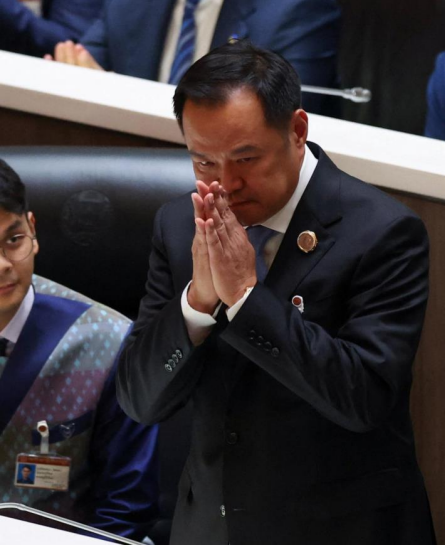A Political Milestone for Thailand
Thailand has entered a new chapter in its political landscape with the election of Anutin Charnvirakul Thailand Prime Minister as the country’s new Prime Minister. Widely recognized as a vocal advocate for cannabis legalization, Anutin’s rise to the top office comes after months of political negotiations and shifting alliances.
His victory is seen as both a breakthrough for progressive drug reform and a test of coalition governance in Southeast Asia’s second-largest economy.
Anutin, leader of the Bhumjaithai Party, secured parliamentary backing through a strategic partnership with the People’s Party, a progressive faction steadily gaining traction among young and urban voters. However, this alliance is fragile, with the People’s Party pressing for fresh elections within four months—placing immediate political pressure on the new government.
Cannabis Legalization at the Heart of the Agenda
Anutin’s political identity has long been tied to his campaign for cannabis legalization and medical reform. As Health Minister in a previous administration, Anutin Charnvirakul Thailand Prime Minister became the first Asian nation to decriminalize cannabis for medical use and personal cultivation.
Now, as Anutin Charnvirakul Thailand Prime Minister, he is expected to advance this agenda further, potentially expanding cannabis use for both medical and regulated recreational purposes.
Supporters believe this policy could:
- Unlock billions of baht in revenue
- Attract foreign investment
- Strengthen Thailand’s position in Asia’s growing cannabis industry
However, critics warn of social and health risks, citing concerns over underage use, regulatory loopholes, and uneven enforcement. Balancing economic opportunity with public health safeguards will be an early test of his leadership.
Coalition Politics and Fragile Stability
While Anutin’s ascent represents a political win, governing may prove difficult. His coalition with the People’s Party is built on uneasy compromises.
The progressives, advocating for sweeping institutional reforms, anti-corruption measures, and greater democratic freedoms, view Anutin as a transitional figure rather than a long-term partner.
The demand for new elections within four months underscores this tension. Analysts suggest that unless Anutin delivers on reform promises and demonstrates effective governance, his tenure could be short-lived.
Regional and International Implications
Anutin’s premiership is drawing attention beyond Thailand’s borders. Neighboring countries in Southeast Asia—many with strict anti-drug laws—are closely monitoring Thailand’s cannabis experiment.
If successful, it could:
- Encourage regional policy shifts around drug regulation
- Boost tourism and economic diversification
- Establish Thailand as a major export hub for medical cannabis
However, foreign investors will closely watch for clear regulatory frameworks to ensure long-term stability.
Economic Challenges Ahead
Beyond cannabis reform, Anutin faces pressing economic challenges:
- Sluggish growth
- Rising household debt
- Global trade uncertainties
The new government must attract investment, create jobs, and stabilize the currency while meeting coalition demands for social reforms and fiscal support.
A Turning Point for Thai Democracy
Anutin’s election symbolizes both continuity and change in Thai politics.
- His cannabis advocacy sets him apart from traditional leaders.
- His reliance on a fragile coalition highlights ongoing governance challenges in a politically divided nation.
Thailand now stands at a crossroads. Whether Anutin’s leadership ushers in a stable, reform-driven era or remains a brief transitional phase will depend on his ability to balance progressive aspirations with pragmatic governance.









